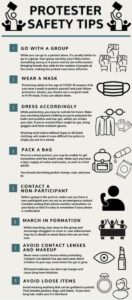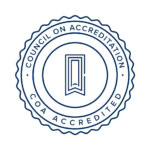Know Your Legal Rights During Police Stops In MA

Know Your Rights and Stay Protected
Did you know that most individuals lack clarity regarding their legal rights during police stops? Grasping your rights in such instances is essential for self-protection and the protection of all parties involved. Being pulled over by the police can be a a frightening experience. While police stops may be intimidating, and even terrifying for some, having awareness of your rights enables you to handle the situation educated and with confidence.
This document furnishes valuable insights into understanding your legal rights during police stops in Massachusetts.
Three Constitutional Rights to remember if pulled over:
- Right to know your Miranda Rights
- Right against self-incrimination
- Right to ask whether you can go
- Right to refuse a search
- Right to refuse a field sobriety test
Understanding Your Rights
Police Stop Procedures
Police stops involve an officer pulling over a vehicle or stopping an individual on foot. Officers must have reasonable suspicion or probable cause to initiate a stop. During a police stop, officers may ask questions and request identification. It’s crucial to remain calm and cooperative during these encounters.
In Massachusetts, you have the right to remain silent during a traffic stop. You are not obligated to answer any questions beyond providing identification and vehicle registration. Even if you believe the stop is unjustified, staying respectful can help prevent escalation of the situation. Additionally, if you are a passenger, you may ask if you are free to leave and if you are told yes, you may silently leave.
Video Recording Legality
In Massachusetts, it is legal to record video and audio of police officers performing their duties in public places. However, be aware of local restrictions or limitations on recording activities. Recording encounters can provide valuable evidence if there are any disputes or allegations of misconduct.
Personal Information Disclosure
In a Massachusetts traffic stop, you must furnish your driver’s license, registration, and proof of insurance upon request by an officer. Nevertheless, there is no obligation to reveal personal details beyond what is essential for identification purposes. It is recommended to refrain from volunteering extra information that could potentially be utilized against you, seeking guidance from an attorney if needed.
Remember that understanding your rights empowers you during police stops while ensuring compliance with the law.
Reasons for Police Stops
Vehicle Stop Justifications
Police officers in Massachusetts must have reasonable suspicion that a violation has occurred or is occurring to justify pulling over a vehicle. This can include common justifications such as traffic violations, equipment malfunctions, or suspicious behavior. If you believe the stop was unjustified, it may be helpful to document details for future reference.
For example, if an officer pulls you over without any apparent reason or justification, and you believe it was due to profiling rather than an actual violation, keeping detailed notes about the incident could be beneficial later on. These notes could include the time and location of the stop, the reason given by the officer for pulling you over, and any other relevant details that might support your claim of an unjustified stop.
OUI Investigation Criteria
Within Massachusetts, law enforcement can administer field sobriety tests when they possess reasonable suspicion of a driver operating under the influence (OUI). Declining a breathalyzer test could lead to license suspension. Recognizing these potential ramifications is essential and seeking guidance from an attorney is advised if you find yourself undergoing an OUI investigation.
If stopped under suspicion of OUI and asked to perform field sobriety tests despite not exhibiting any signs of impairment, being aware of your rights becomes essential. Understanding what constitutes reasonable suspicion in this context can help protect your legal rights during such stops.
During the Stop
Compliant Behavior
Remaining calm, respectful, and cooperative during a police stop is crucial. This behavior can help ensure a smoother interaction with law enforcement officers. Avoid making sudden movements or reaching for objects without notifying the officer. By doing so, you contribute to a safer and more positive outcome for everyone involved.
It’s important to understand that compliant behavior doesn’t mean giving up your rights. Instead, it’s about balancing asserting your rights while ensuring the situation remains peaceful. For example, if an officer asks to search your vehicle and you do not consent, clearly state that you do not consent but avoid any aggressive or confrontational behavior.
Refusal Consequences
Refusing to comply with an officer’s lawful orders during a police stop can lead to additional charges such as obstruction of justice. It is essential to understand that there are consequences for refusal; however, it’s equally important to assert your legal rights respectfully and within the bounds of the law.
Being cognizant of these potential consequences empowers individuals to make informed decisions during a police stop. By understanding both their rights and the potential outcomes of their actions, individuals can navigate interactions with law enforcement in Massachusetts more effectively with the assistance of a qualified attorney.
Illegal Police Stops
Identifying Unlawfulness
If you believe your legal rights have been violated during a police stop in Massachusetts, it’s crucial to gather essential details. This includes noting down the officer’s badge number, patrol car number, and any witnesses present at the scene. Seeking assistance from an attorney specializing in civil rights or criminal defense can provide valuable insights into whether legal action is warranted. Understanding what constitutes unlawful behavior by law enforcement enables individuals to protect their rights effectively.
Having concrete evidence such as badge numbers and witness statements can strengthen your case if you decide to take legal action. Contacting a knowledgeable attorney who specializes in civil rights or criminal defense can offer clarity on the legality of the situation.
Protecting Your Rights
Knowing your rights is fundamental when dealing with police stops in Massachusetts. Educating yourself about the laws and regulations governing police interactions empowers you to navigate these situations confidently. If there are concerns about potential violations of your rights, seeking legal advice becomes imperative for safeguarding yourself against any misconduct by law enforcement.
Documentation and Evidence
Recording the Encounter
Documenting encounters with police officers can be crucial in safeguarding your legal rights during police stops in Massachusetts. It offers valuable evidence in case of disputes or allegations of misconduct. Make sure that recording is legal in your jurisdiction and adhere to any guidelines or restrictions imposed by local laws. Exercise discretion when recording and refrain from interfering with the officer’s duties with guidance from an attorney.
For example, if you’re pulled over for a traffic violation, using your smartphone to record the interaction without causing a disturbance can help protect your rights. If there are discrepancies between what happened during the stop and what is documented in official reports, having your own recording can serve as strong evidence.
Gathering Information
Collecting information during a police stop is another essential step to safeguard your legal rights. Take note of officer names and badge numbers, as well as the date, time, location, and any details about the encounter. This information can assist you or your attorney in addressing any potential issues that arise from the stop.
Roadblocks and Sobriety Checkpoints
Understanding the Legal Implications
Grasping the legal implications of your actions during a police stop is crucial. If you have questions or concerns about the potential consequences of your behavior, consulting with a attorney is essential. They can offer valuable insights into how to navigate legal complexities effectively.
Being aware of the legal framework can help you make informed decisions during a police stop. For instance, knowing when to assert your rights and understanding what constitutes probable cause for searches can empower you to protect yourself within the boundaries of the law.
Rights at Roadblocks
At roadblocks in Massachusetts, you have specific rights that are important to remember. You have the right to remain silent and decline searches unless there is probable cause or a warrant. Cooperating with officers while respectfully asserting your rights is crucial for maintaining a balanced interaction.
If you believe your rights have been violated at a roadblock, consulting with an attorney becomes imperative. They can help you understand whether there has been any infringement and guide you on possible courses of action based on documented evidence from such encounters.
Remember that being knowledgeable about your legal rights empowers you during police stops and ensures that law enforcement officials conduct themselves within prescribed legal parameters.
After the Stop
Post-Stop Procedures
Following a police stop, it’s crucial to review and document all the details of the encounter. This includes noting down the officer’s badge number, patrol car number, and any other relevant information. If you have concerns about your treatment during the stop or believe that your rights were violated, consider filing a complaint with the appropriate authorities. This could involve contacting internal affairs at the police department or reaching out to organizations that handle complaints against law enforcement with guidance from an attorney.
Seeking legal advice is also essential after a police stop, especially if you feel that your rights may have been infringed upon. A legal professional can provide valuable guidance on how to proceed if you wish to take any further action regarding the incident.
Hiring a Lawyer
If you are facing charges following a police stop or believe that your rights were violated during the encounter, it’s advisable to consult with an experienced attorney.
A knowledgeable attorney can offer insights into how best to protect your rights and navigate through any legal proceedings effectively.
When looking for legal representation, it’s important to research reputable attorneys who specialize in criminal defense or civil rights cases. These lawyers will have expertise in handling situations involving law enforcement interactions and will be better equipped to advocate for your rights effectively.
Arrest Procedures and Rights
During Arrest
During police stops in Massachusetts, it’s crucial to stay calm and follow the lawful orders from the arresting officer. If you’re being arrested, you have the right to know why and should not physically resist. It’s important to remember that you can invoke your right to remain silent until consulting with an attorney.
When faced with an arrest, cooperating with the arresting officer is essential for a smooth process. By understanding your rights, such as knowing why you are being arrested and remaining silent until consulting an attorney, you can protect yourself legally.
Post-Arrest Rights
Following an arrest, it’s within your legal rights to consult with an attorney before answering any questions by law enforcement. Your Miranda rights include the privilege of remaining silent and having legal representation present during questioning. Furthermore, exercise caution when discussing your case with others because anything said could potentially be used against you in court.
Understanding post-arrest rights empowers individuals during police stops in Massachusetts. Knowing that one has the right to seek legal counsel before answering questions or making statements helps ensure fair treatment under the law.
Conclusion
You now have a clear understanding of your legal rights during police stops in Massachusetts. Remember, staying calm and knowing your rights are crucial during any encounter with law enforcement. Whether it’s a routine traffic stop or a more serious situation, being aware of what the law allows can make a significant difference in the outcome.
So, if you ever find yourself in such a situation, remember to assert your rights respectfully and document everything you can. It’s also essential to consult with an attorney if you believe your rights have been violated. Stay informed, stay vigilant, and stay safe out there!
Frequently Asked Questions
What are my rights during a police stop in Massachusetts?
During a police stop in Massachusetts, you have the right to remain silent and the right to refuse searches without a warrant. You also have the right to ask if you are free to leave. It’s important to stay calm and respectful while asserting your rights.
Can I record interactions with the police during a stop?
Yes, in Massachusetts, it is legal to record interactions with the police as long as you do not interfere with their duties. Recording can serve as valuable evidence of what occurred during the stop.
What should I do if I believe a police stop was illegal?
If you believe that a police stop was illegal, it’s crucial to document all details and promptly seek legal advice from a Boston defense lawyer. Be sure to note down officers’ badge numbers or vehicle information and gather any available witnesses or evidence.
Are there specific procedures for being arrested in Massachusetts?
In Massachusetts, when being arrested, remember that you have the right to know why you are being arrested and request an attorney immediately. Stay calm and cooperative but assert your rights firmly.
How can I handle roadblocks or sobriety checkpoints in Massachusetts?
During roadblocks or sobriety checkpoints in Massachusetts, be prepared by having necessary documents readily available. Follow instructions from law enforcement but remember that certain rights still apply – such as remaining silent about alcohol consumption.
Additional Information and links concerning your rights:
- Please click the following link for resources from the ACLU in reference to your rights during police encounters: https://www.aclu.org/know-your-rights/stopped-by-police
PRINTABLE DOCS. Regarding your rights:
 .
.  .
. 


